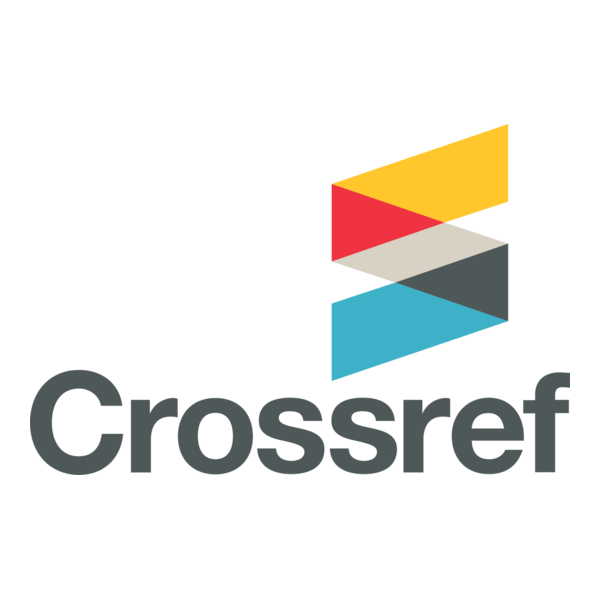Intergenerational Cooperation, Learning and Knowledge-Sharing in the Workplace
Keywords:
generations at work, intergenerational cooperation, forms of intergenerational learning,, knowledge-sharing, transfer knowledge at workAbstract
Background and Originality: The article focuses on organizations that face the challenge of establishing a working environment adapted to the characteristics of different generations of employees. Each of the generations in the workplace must be motivated to work, cooperate and share knowledge among co-workers of different ages. Many research studies have been done on motivation in the workplace, but we have not found the research on the impact of different learning forms to motivate different generations to cooperate and exchange knowledge at the workplace, either on a Slovenian or global scale.
Method: In this study, we examine the following two issues: If different approaches are needed to motivate different generations of employees to cooperate, and whether different generations differ in the desired ways of acquiring and sharing knowledge, using Piktialis and Greenes (2008) categorization of learning and knowledge-sharing forms at work. In the critical assessment of motivation for intergenerational cooperation and knowledge-sharing, we used a quantitative research method. The survey was conducted on a random sample among employees in a selected organization with 2,000 staff, with 334 responding to the survey.
Results: The results showed that for Generation Z it is least important that they to share their knowledge and work experience with colleagues from other generations and that the younger generations (Y and Z) are less suited to knowledge-sharing through storytelling (examples from practice, comparisons, summarizing experiences) and summaries of key knowledge (from conversations, interviews, conferences).
Society: The concept of intergenerational cooperation in the workplace includes knowledge-sharing among staff, as well as a shift from knowledge-sharing to co-creating knowledge. We believe this shift is of key importance for further development of human capital as well as knowledge accumulation in the organization. Therefore, co-creating knowledge should represent the future ambitions of every organization and research's communities.
Limitations / further research: Research limitations and suggestions for further research.
A selective sample should be taken into account as this research only included one organization and individuals from this particular organization that were motivated to participate. The small sample of generation Z should also be mentioned. The main limitation of this research was the failure to consider an individual's characteristic, organizational climate and communication pattern among different departments. At the same time, the focal organization operates in different geographical locations, as this can play an important role in intergenerational cooperation and knowledge-sharing. Herefore, each organization needs to determine the preferred form of knowledge-sharing in each specific environment and choose a form that suits both the employees who provide information and those who receive it. This is also an area of further research, thus the influence of organizational climate and culture on the process of intergenerational cooperation and knowledge exchange.
References
Annual Report of Company X. (2016). Retrieved from website of Company X
Annual Report of Company X. (2017). Retrieved from website of Company X
Annual Report of Company X. (2018). Retrieved from website of Company X
Bal, P., Kooij, D., & Rousseau, D. (2018). Aging workers and the employee-employer rela-tionship. Switzerland: Springer International Publishing.
Bjursel, C. (2019). Inclusion in education later in life: Why older adults engage in education activities. European Journal for Research on the Education and Learning of Adults, Vol.10, No.3, 2019, pp. 215-230. DOI:10.3384/rela.2000-7426.rela20192
Brečko, D. (2018). Motivacija odraslih za pridobivanje in nadgradnjo znanja. Ljubljana: Andragoški center Slovenije.
Brečko, D. (2019). Motivacija zaposlenih za pridobivanje in obnavljanje znanja. S svetovan-jem za zaposlene do večje vključenosti v izobraževanje in usposabljanje (str. 82–101). Ljubljana: Andragoški center Slovenije.
Cigno, A. (2005). The political economy of intergenerational cooperation; CESifo working paper no. 1632. Firence: Faculty of Political Science, University of Florence.
Debeljak, T., Komljen, I., & Tomat, N. (2017). Starejši zaposleni o stanju izobraževanja starejših zaposlenih na delovnem mestu v Sloveniji. Ljubljana: Filozofska fakulteta.
Dill, K. (2019). 7 things employers should know about the Gen Z workforce. Retrieved from https://www.forbes.com/sites/kathryndill/2015/11/06/7-things-employers-should-know-about-the-gen-z-workforce/#2598a95afad7
Direktiva Sveta 2000/78/ES z dne 27. novembra 2000 o splošnem okviru za enako obravnavanje pri zaposlovanju in poklicu. (2000). Uradni list L 303, 02/12/2000, pp. 16 - 22.
Dolenec, D. (2018). Prihod generacije Z. Retrieved from https://psihologijadela.com/2018/01/24/prihod-generacije-z/
Dolot, A. (2018). The characteristics of Generation Z. Retrieved from http://dx.doi.org/10.15219/em74.1351
European Commission. (2011). Transferability of Skills across Economic Sectors: Role and Importance for Employment at European Level. Retrieved from https://www.researchgate.net/publication/294260822_Transferability_of_Skills_across_Economic_Sectors
Hsu, I.C. (2006). Enhancing Employee Tendencies to Share Knowledge - Case Studies of Nine Companies in Taiwan. International Journal of Information Management, 26 (4), 326-338. DOI: 10.1016/j.ijinfomgt.2006.03.001
International Labour Organization. (2013). Global employment trends for youth 2013. Ženeva: International Labour Office.
International standard ISO 10018:2012. Quality management - Guidelines on people's involvement and competence. Switzerland: International Organization for Standardization.
Internal material of Company X. (2018, 2019). Retrieved from Archive of Company X
Jiacheng, W. Lu, L. & Francesco, C.A. (2010). A cognitive model of intra-organizational knowledge-sharing motivations in the view of cross-culture. International Journal of Infor-mation Management, 30(3), 2020-230. DOI: 0.1016/j.ijinfomgt.2009.08.007
King, E., Finkelstein, L., Thomas, C., & Corrington, A. (2019). Generational differences at work are small. Thinking they're big affects our behavior. Harvard Business Review. Re-trieved from https://hbr.org/2019/08/generational-differences-at-work-are-small-thinking-theyre-big-affects-our-behavior
Kronos Incorporated. (2019). Meet Gen Z. The next generation is here: Hopeful, anx-ious, hardworking, and searching for inspiration. Retrieved from https://workforceinstitute.org/wp-content/uploads/2019/05/Meet-Gen-Z-Hopeful-Anxious-Hardworking-and-Searching-for-Inspiration.pdf
Listina Evropske unije o temeljnih pravicah. (2012). Uradni list UL C, 26. 10. 2012, str. 391 - 407.
23. Maj, J. (2015). Age management in enterprises: CSR or a necessity? Retrieved from https://www.researchgate.net/publication/286077807_Age_management
_in_Polish_enterprises_CSR_or_a_necessity
McCrindle, M. (2020). Why we named them Gen Alpha. Retrieved from https://mccrindle.com.au/insights/blogarchive/why-we-named-them-gen-alpha/
Piktialis, D., & Greenes, K. (2008). Bridging the Gaps: How to transfer knowledge in today's multigenerational workforce. Canada: The Conference Board, Inc. Retrieved from www.conference-board.org/kt
Pontefract, D. (2018). Millenials and Gen Z have lost trust and loyalty with business. Retrieved from https://www.forbes.com/sites/danpontefract/2018/06/03/
millennials-and-gen-z-have-lost-trust-and-loyalty-with-business/#7cbe23366145
Prelog N. & Ismagilova, F. S. & Boštjančič, E. (2019). Which employees are most moti-vated to share knowledge - the role of age-based differentiation in knowledge-sharing motiva-tion. Changing Societies & Personalities, Vol 3., No.1, pp. 52-67. DOI:10.15826/csp.2019.3.1.060
Rozman, R., & Kovač, J. (2012). Management. Ljubljana: GV Založba.
Speer, L. (2011). Four generations working together in the workforce and in higher edu-cation. Tennessee: East Tennessee State University.
Stahl, A. (2018). Gen Z: What To expect from the new workforce. Retrieved from https://www.forbes.com/sites/ashleystahl/2018/09/26/gen-z-what-to-expect-from-the-new-work-force/#557c058863e0
Stillman, D., & Stillman, J. (2017). Gen Z Work - How the next generation is transform-ing the workplace. HarperCollins.
Tolbize, A. (2008). Generational differences in the workplace. Minnesota: Research and training center on community living, University of Minnesota.
Tros, F., & Keune, M. (2016). Intergenerational bargaining in the EU. Amsterdam Insti-tute for Advanced labour Studies (AIAS). Nizozemska: University of Amsterdam.
United Nations. (2017). World Population Ageing. New York: United Nations.
Yanhan, Z. (2013). Individual behavior: in-role and extra-role. International journal of business administration. Retrieved from http://dx.doi.org/10.5430/ijba.v4n1p23
Additional Files
Published
How to Cite
Issue
Section
License

This work is licensed under a Creative Commons Attribution-ShareAlike 4.0 International License.
![]()








